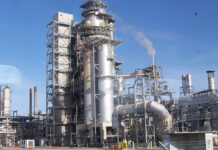
CBN Retains Interest Rates at 27.5% to Cushion Food Inflation, Insecurity
The Central Bank of Nigeria has announced its decision to maintain Monetary Policy Rates (MPR), which benchmarks interest rates at 27.5 per cent.
The decision of the Monetary Policy Committee of the bank was made known to journalists at a press briefing by the Central Bank governor, Mr. Olayemi Cardoso, at the 300th MPC meeting held on Tuesday in Abuja
He said the decision was hinged on the moderation of food inflation as well as the sustained efforts in fighting insecurity, especially in farming communities.
The MPC at its last meeting in February 2025 also maintained the interest rate at 27.5 per cent, following the rebasing of the Consumer Price Index (CPI).
Subsequently, the retention of the Monetary Policy Rate at 27.50 per cent marks its second consecutive hold in 2025.
This second retention in rates is coming after six consecutive hikes recorded in 2024.
Cardoso said, “The committee was unanimous in its decision to hold policy and thus decided as follows: Retain the MPR at 27.50 per cent,” adding that the pause would enable members to better understand near-term developments in the economy.
With this move, the CBN retained the asymmetric corridor around the MPR at +500/-100 basis points, the Cash Reserve Ratio of Deposit Money Banks at 50.00 per cent and that of Merchant Banks at 16.00 per cent, while keeping the Liquidity Ratio unchanged at 30.00 per cent.
Reasons behind holding rates
Mr. Cardoso told journalists that the MPC based its decision on recent improvements in macroeconomic indicators, especially food inflation, which had begun to moderate.
“All 12 members of the committee were present and the decision of the committee was unanimous to maintain rates at 27.5 per cent and cash reserve ratio for Deposit Money Banks at 50 per cent and 16 per cent for merchant banks.
“Also, the Liquidity Ratio of banks was also maintained at 30 per cent,” Cardoso said.
He added, “The committee’s decision was hinged on the moderation of food inflation and success in the fight against insecurity, especially in farming communities.”
According to the National Bureau of Statistics, headline inflation dropped to 23.71 per cent in April 2025 from 24.23 per cent in March.
On a month-on-month basis, inflation also declined significantly from 3.9 per cent to 1.86 per cent.
Food inflation fell to 21.26 per cent from 21.79 per cent, while core inflation eased to 23.39 per cent in April from 24.43 per cent in March.
Cardoso, however, stated that the committee notes these developments with cautious optimism.
“The MPC noted the relative improvements in some key macroeconomic indicators which are expected to support the overall moderation in prices in the near to medium term,” Cardoso said.
He also acknowledged the efforts of the government in improving food supply and tackling insecurity in farming communities.
Read Also:
Despite these gains, the CBN expressed concern about lingering inflationary pressures driven by high electricity costs, persistent demand for foreign exchange, and structural issues within the economy.
“The committee welcomed reforms introduced by the federal government aimed at boosting local production and reducing demand for forex, noting that such moves would help dampen inflationary pass-through.
“The MPC also reviewed developments in the foreign exchange market and urged the apex bank to continue implementing reforms to enhance investor confidence,” he further explained.
What this mean for the economy
The CBN’s decision to hold rates steady signals its focus on maintaining price stability while cautiously supporting economic recovery.
By maintaining current rates, the bank is giving room for existing policies to yield results before implementing further adjustments.
According to the MPC communiqué, the committee emphasised the importance of coordinated efforts between fiscal and monetary authorities to sustain economic growth and manage inflationary pressures.
Market analysts suggest any potential rate cuts will depend on inflation trends and exchange rate stability over the coming months.
However, if inflation continues to moderate and the foreign exchange market stabilises, the CBN may consider a more accommodative policy stance in the second half of the year.
Similarly, the analysts at Cordros Research projected the MPC meeting will maintain the status quo on rates at the second meeting for this year.
At the first meeting in 2025, the committee voted to retain the interest rate or Monetary Policy Rate at 27.50 per cent, retain the Cash Reserve Ratio (CRR) at 50 per cent for deposit money banks and 16 per cent for merchant banks.
Cordros, in a report, stated that since the last MPC meeting, the global economic landscape has grown increasingly volatile and uncertain, primarily driven by persistent trade protectionist policies in the US.
“In our view, the MPC is likely to take these developments into account, particularly the elevated global uncertainty and its adverse implications for naira stability, despite a positive real rate of return, given the current inflation rate.
“Against this backdrop, we expect the MPC to adopt a cautious stance, leaving the Monetary Policy Rate (MPR) unchanged, alongside retaining all other policy parameters in a bid to anchor inflation expectations and maintain the naira’s attractiveness.”
They noted that in the FX market, the naira has come under renewed pressure in addition to heightened global uncertainty stemming from the tariff war, triggering capital outflows from foreign portfolio investors, further tightening FX liquidity.
Oil prices and fragile investor sentiment could undermine foreign investor confidence.
“Accordingly, we expect the MPC to maintain a cautious stance by holding the MPR at 27.5% and leaving all other policy parameters unchanged,” Cordros analysts added.












































